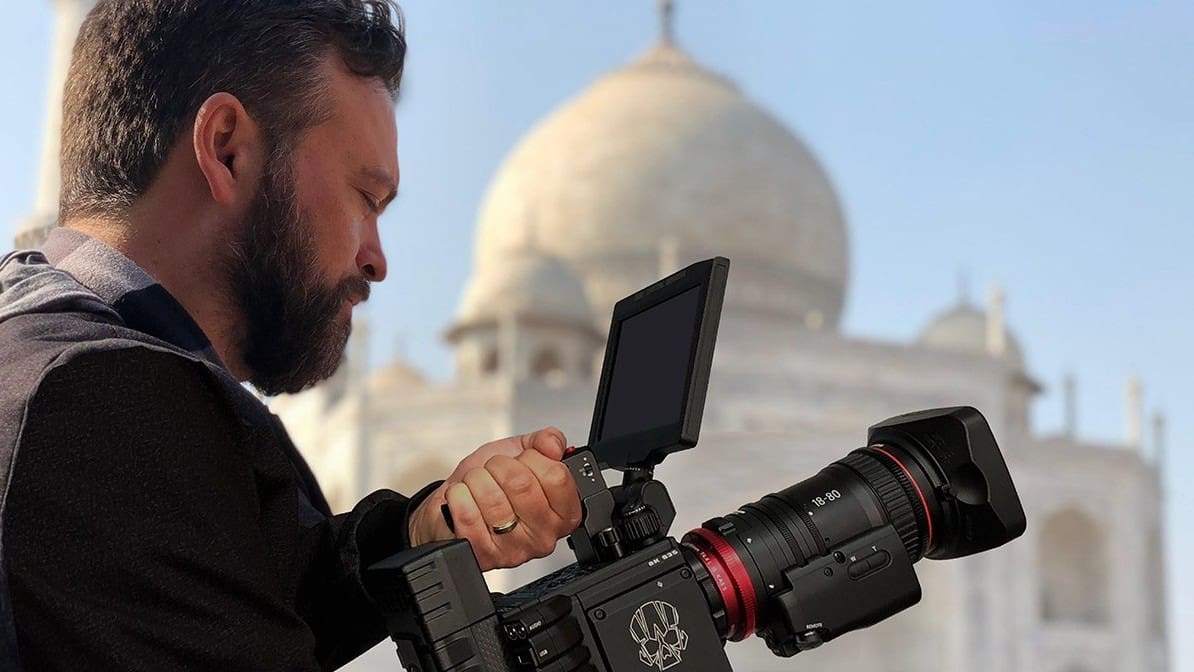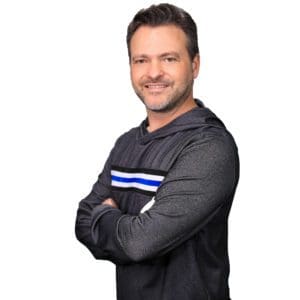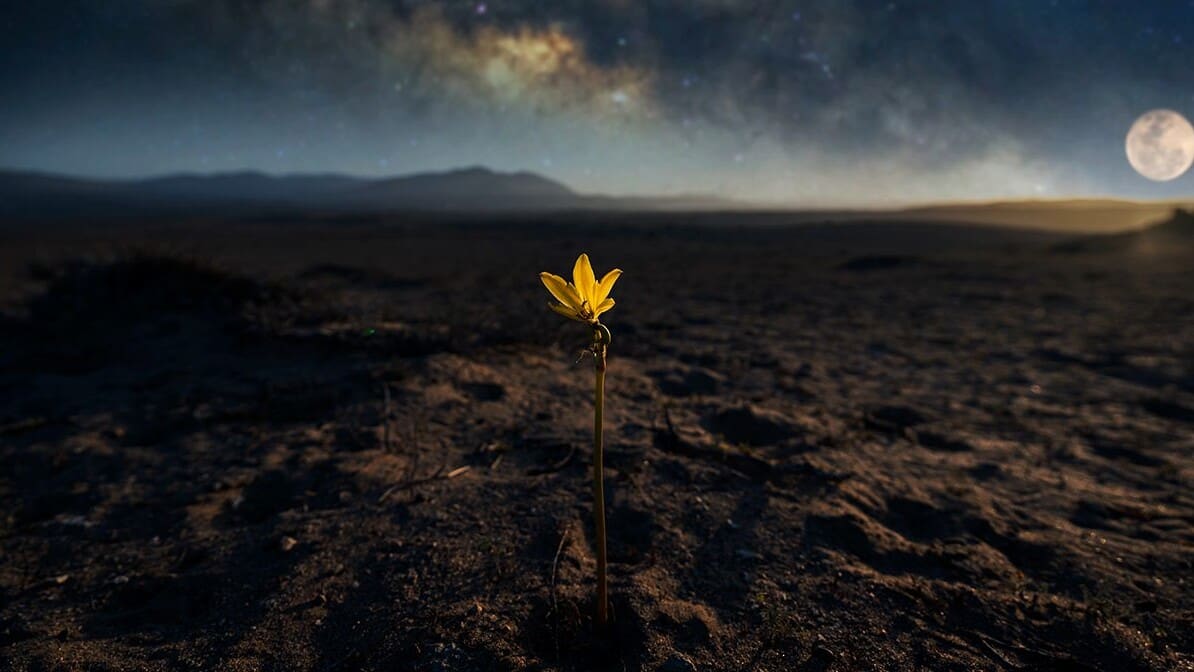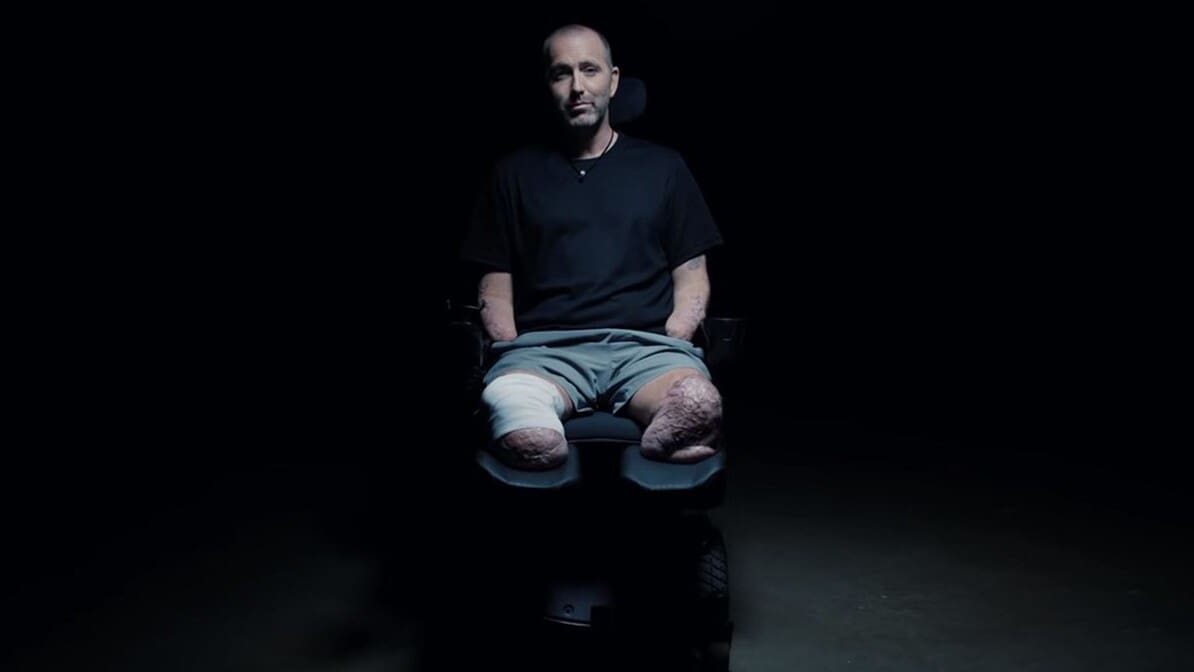
Daniel Kennedy and the ‘Healthy Long Life’ (Part 1)
John Farrell: Could you please tell me a little bit about the “Healthy Long Life” docuseries?
 Daniel Kennedy: The “Healthy Long Life” docuseries was filmed to help people increase their health-span. You’ve probably heard of lifespan, which is related to the life expectancy that is now a little over 77 years. It was higher before the pandemic, but the pandemic cut the life expectancy in America by about a year. And if you’re black, it took two years off your life. And if you’re Latino, like myself, it cut three years off the life. So, we really need the information in “Healthy Long Life.”
Daniel Kennedy: The “Healthy Long Life” docuseries was filmed to help people increase their health-span. You’ve probably heard of lifespan, which is related to the life expectancy that is now a little over 77 years. It was higher before the pandemic, but the pandemic cut the life expectancy in America by about a year. And if you’re black, it took two years off your life. And if you’re Latino, like myself, it cut three years off the life. So, we really need the information in “Healthy Long Life.”
So, what can the average person do to increase the health-span? Not the lifespan. The health-span is the number of healthy years you can expect to live. And that’s only 68 years. So, the average American’s gonna spend about 10 to 11 years in pain, suffering, and crushing medical bills if they don’t become proactive about their health.
JF: So, where did the idea for this series originate?
Daniel: Well, I had two motivations. I had had a professional motivation and I had a personal motivation.
My professional motivation came from working at Oasis of Hope hospital, which was founded by my grandfather to treat patients with cancer on a more holistic basis. We have the science. We have the licensed oncologists, but we also provide nutrition therapy and spiritual. We may be one of the only cancer centers in the world that has a pastor that leads praise, worship, and the prayer every single day before treatment.
And as I’m working here for the better part of three decades as a counselor and I’m counseling cancer patients, I find that one of the top needs they have, or urgencies they have, is that their loved ones don’t get cancer as well. So, I set out to go around the world to find out what we can do to prevent cancer, cardiovascular disease, diabetes, and obesity.
Now, this is so important. These are the statistics from the CDC: 80 percent of people over the age of 65 have one of those chronic diseases, be it diabetes, cancer, or heart disease. What is alarming to me is that 30 percent of adults between the ages of 18 and 64 have multiple chronic conditions already. So, the urgency to do something beyond going to a doctor to fix you is there.
My personal motivation is that cancer runs rampant in my family. My grandmother died of ovarian cancer. My dad had three types of cancer but died of congestive heart failure. His brother, my uncle, died of pancreatic cancer and his only sister died of stage four melanoma.
When you go to a doctor you fill out those questionnaires that ask whether a variety of diseases run in your family and you instantly think, ‘I’m doomed. If everybody in my family had cancer, then I’m gonna get cancer, right?’ That’s not true.
What I found out in “Healthy Long Life” interviews – I interviewed top research experts at Max Clinic Institute, the World Health Organization, and Cancer Research UK – and what they all confirmed was that only 5 percent of all cancers result from an inherited cancer gene. Ninety-five percent of all cancers come from mutated genes that result from our lifestyle or the environment.
I don’t know if you think you can change the environment. There’s plenty of people trying to change the environment, but you can’t control that by yourself. You can control what you’re doing as far as healthy habits go.
The Key to Living Healthier, Longer
JF: What can someone do to increase their health-span, and what is the most important factor people should remember in order to age healthily?
Daniel: This is stated clearly in my docuseries, “Healthy Long Life.” One of the most eloquent speakers is Dr. Michael Klaper, and he would answer your question with “it’s the food; it’s the food; it’s the food.”
The reality is food is something that we all do multiple times a day, not just three meals. We’re probably snacking our way through stressful days, but changing from unhealthy foods to healthy foods and cutting back the quantity you’re eating are the two key ways to add more healthy years to your life.
The average person is going to know what’s healthy and what’s not. We don’t even need to educate. We need to motivate people. I could give a quiz right now and ask, “Deep-fried hush puppies? Adding years to your life or taking years off?” We know the answer. How about an organic apple? Of course, it keeps the doctor away. That’s what I found out.
I spoke to a scientist at the University of Delhi in India and one at the University of Beijing in China. To an oncologist in Rome. And they all converge and agreed that food is the number one factor. But not only that. There is a study published by Harvard School of Public Health in 2020, and it stated boldly that 80 percent of chronic conditions can be prevented by five lifestyle habits.
Number one: nutrition. Number two was to get daily physical activity. And I like to pair that with stress management because we are so stressed, and exercise is a great way to manage that stress. Included in that was losing weight. Go on the Internet and search for a Body Mass Index (BMI) calculator. If you’re at a body mass index of 25, you’re at a very healthy weight. Unfortunately, most of us are way over 25. If you’re in the thirties, you are at a high risk for death in the next few years because obesity is related to an increase of diabetes, cancer, and cardiovascular disease.
So, maintain a healthy BMI was number three. Number four was if you’re going to drink alcohol, it better be in moderation because drinking more than one drink a day increases your probability of those diseases. And number five – which it shouldn’t be number five, it should be number one on the list – is don’t use tobacco in any form. In fact, the increase of survival of cancer has nothing to do with treatments. The treatments are not improving. It has everything to do with people getting the message to stop smoking.
JF: So, it’s all about prevention.
Daniel: If you would like to get sick first and see if the doctors can fix you, go ahead and follow what 90 percent of Americans are doing. But I don’t wanna play that kind of roulette with my life considering that my family doesn’t have a good health history. It’s not because we have cancer genes. We don’t. It’s because my dad was a Nazarene pastor and the Nazarenes in the sixties had a strict Sunday diet. That was pot roast, potatoes, and carrots, but people are eating that all day long and that kind of diet is not the diet our body wants.
So, I’m changing my diet. I am eating lots of vegetables and fruit. A high-fiber diet. Low in sugar, low in oil, and low in salt because I have three ladies that are so important to me – my wife and my two daughters – who I wanna help prevent them from getting cancer and heart disease.
Now I have a little grandson who’s only seven months old. He’s named after me, so I call him “Baby Daniel.” Baby Daniel has a mom, who’s my daughter that I’m so proud of. We buy all organic vegetables, but babies don’t eat much at seven months so it’s not that expensive. My daughter actually makes all his baby food in a tiny little baby Nutribullet. It is so cute. It’s so cute to see him eating those organic vegetables. And I’m really excited that Baby Daniel will grow up to be a very healthy individual that will live a long life to complete God’s purposes for his life.
What Not to Do
JF: You stress the importance of eating healthy food, eating in moderation, and eating foods that are low in sugar. What is the biggest trap people fall into when it comes to food and dieting that they could easily prevent or fix?
Daniel: I really think that emotions are something that drive us to eat because comfort food is not called comfort food for no reason. Food is so comforting.
I think I even fall into that trap of overeating when I feel a lot of stress. I have to be really aware of that and keep healthy snacks close by. Things like carrot sticks or – and this one’s not very good – low-sodium sunflower seeds in shells. It’s key that they’re in shells because I can’t really do a whole lot of damage when I have to unshell a tiny little sunflower seed. But if you buy unshelled sunflowers, you could eat a thousand calories in two handfuls. Eating healthy snacks.
I didn’t transition. I did not go cold turkey because I don’t think you can sustain meaningful change if you just one day say, “I’m gonna be vegan.” Good luck. That’ll probably last a day. If that.
Here’s what I did, and I’d recommend for everybody to do as a first step. I stopped going to fast food a long time ago. Let’s say a burger and fries – that is like a deadly combination because it throws your insulin through the roof and leaves the inflammation – but if you wanna have a burger and fries, make it at home. Make it at home and search for better ingredients. One, it will take you a while to make so you probably won’t have it as often. Tell yourself, “I’m not denying myself the pleasure of my burger or fries, but I’m gonna make it myself because I want better ingredients. I can bake those fries and then maybe put a little crisp on it in the pan afterwards and not deep fry it. I could do those things. So, I’m not gonna deny myself the pleasure I’m seeking, but I won’t go the fast-food route.”
I found that to be very effective, and I’m gonna confess a secret: the hardest thing for me to give up, which is so unhealthy, was Diet Coke. I was eating rather healthily and then having that horrible drink, which is all chemical. When I finally was able to substitute that with something like a sparkling water, something miraculous happened. I stopped having daily headaches. Had I known that the aspartame in the diet soda was causing daily headaches I could have saved myself 15 years of daily headaches. I thought it was stress. Nope. It was the chemical I was putting in my body.
Those would be my simple recommendations. Eat whatever you want but make it yourself. That’s the first step toward eating more healthy. Two: cut out sugary drinks, especially the diet ones.
Trending Now
Sign up today for your Inspiration Today Daily Newsletter
Supercharge your faith and ignite your spirit. Find hope in God’s word. Receive your Inspiration Today newsletter now!
John Farrell
John Farrell serves as the Digital Content Manager at Inspiration Ministries, where he oversees the planning, organization, and management of website content to support the ministry's global digital outreach. With a strong background in writing and editorial strategy, John ensures that the articles, devotionals, and discipleship resources on Inspiration.org are accurate, engaging, and aligned with the ministry's mission.
John has authored more than 1,000 articles, press releases, and features for Inspiration Ministries, NASCAR, Lionel, and Speed Digital. His versatility as a writer is also showcased in his 2012 book, The Official NASCAR Trivia Book: With 1,001 Facts and Questions to Test Your Racing Knowledge.
A graduate of Appalachian State University, John brings excellence and attention to detail to the digital experience at Inspiration Ministries. He lives in Concord, N.C., with his wife and two sons.
Related Articles
January 28, 2026
I Just Knew It Was God: From Searching to Finding Faith
From the outside, Ekaterina’s life looked successful. She had a college degree, a strong career,…
January 26, 2026
How to Overcome Old Wounds with Resilience
How Do You Deal with Old Wounds? Everyone is talking about trauma, but very few are talking about…
November 21, 2025
Thank You … Lord
Gratitude transforms our lives and draws us closer to God. This article explores how practicing…
October 27, 2025
So, Is God Good?
Many people wrestle with the question, is God good, especially when life brings pain and loss.…
Next Steps To Strengthen Your Walk
Inspiration Today Newsletter
Supercharge your faith and ignite your spirit. Find hope in God’s word. Receive your Inspiration Today newsletter now!
Christian Articles
Find articles to strengthen your walk and grow your faith. We have a wide range of topics and authors for you.
Submit A Prayer Request
We are here for you. Simply click on the button below to reach us by form, email or phone. Together we will lift our hearts and voices with you in prayer.





